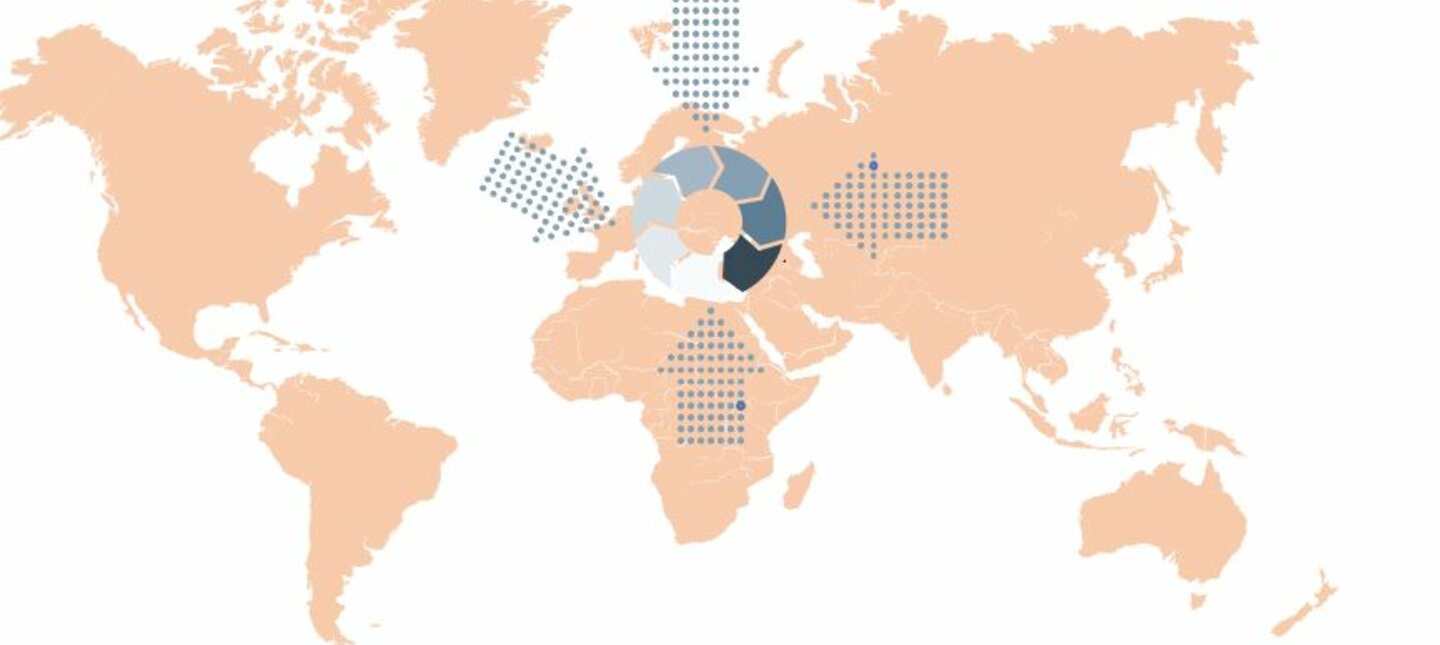Simply stated, outsourcing is hiring someone else to do the work or help you with part of a client assignment, instead of doing all of it yourself. Outsourcing has become one of the main drivers of economic development. Countries like India and the Philippines have benefited from outsourcing. Can other countries in the Western Balkans do better to drive a more inclusive economic development?
The Western Balkans: a ‘nearshoring Mecca’?
The Western Balkans have ‘collectively’ become one of the most attractive locations for outsourcing. The region is competitive in the ICT-BPO – Information, Communication, and Technology – Business Process Outsourcing – sector compared to global giants like India and the Philippines.
Some of the attractive features of the Western Balkans include competitive labor and business operating costs; proximity to most major clients in core European countries; and good-quality internet is available across most of the region. Also, the region has the youngest population in Europe and is multilingual, as well as there have been recent investments in new models, such as work-from-home arrangements.
With the unfolding public health crisis due to the COVID-19 outbreak, the titans like India and the Philippines, which have previously served as hubs for the ICT-BPO sector, were hard hit. Clients disallowed transfer to the work-from-home model. Also, employees in the BPO sector were unable to commute to work due to COVID-19 restrictive measures. The pandemic crisis offers opportunities for the Western Balkans, making them ‘nearshoring Mecca’.
However, these potentials were not adequate and systematically tapped.
One problem is the limited access to foreign markets and the difficulty of acquiring new clients and contracts on the international market. There is limited information available due to the underperformance of business services. Little is known about business practices, market structures, business trends, demand characteristics, and use of information.
There is also an associated high cost and fragmentation of business services that are unaffordable and difficult for almost all companies. For instance, nobody knows the exact number of ICT and BPO service providers operating locally and the range of services and employment opportunities they provide. This prevents foreign buyers of services from knowing about the quality of service provision from the local suppliers.
Even if the above-mentioned constraints are addressed, there is a more critical problem in recruiting staff with the right skills sets. Many of the vacancies remain unfilled and companies struggle to recruit people with the right skills. Besides, women and young people’s perceptions of the ICT-BPO sector are bad. They think companies in the ICT-BPO sector pay low wages. The reason for this is a mismatch between the skills being nurtured and developed by the region’s vocation, education and training (VET) providers and those demanded by employers.
Most enterprises in the ICT-BPO sector are fragmented and offer limited scope to invest and grow. Only a limited number of them are successful at entering the markets, and most of the enterprises are not able to make full use of the opportunities. The problem lies in the little collaboration between industry actors. The performance of industry associations to coordinate and engage with governments as well as attracting major clients is low.
Creating a ‘regional brand’
Helvetas is partnering with the Swedish International Development Cooperation Agency (Sida) to facilitate an inclusive economic development program in 12 countries in Eastern Europe, South Caucuses, and the Western Balkans. One pilot that the program facilitates is addressing constraints in the ICT-BPO sector in the Western Balkans
The program responds to the previously-mentioned constraints and creates a Western Balkan ‘value proposition’. In practice, this means branding the region as a whole by stimulating the competitiveness of private-sector enterprises and creating a critical mass of skilled youth to attract more clients.
A regional ‘value proposition’ focuses on three key points. These are models tested in different countries – Albania, Bosnia & Herzegovina, and Kosovo. The program doesn’t aim to do more of the same.
The first is promoting the ICT-BPO services and enabling enterprises to understand the outsourcing markets. The program supports private sector enterprises to increase their exports and/or win more outsourced business from key markets by utilizing new business development and B2B services. The program will partner with leading ICT-BPO enterprises to add value to the services of local enterprises and to enter new regional and international markets. With increased capacities, they will serve as role models to be followed by other enterprises. Through this approach, the program will scale up the pilot to include other enterprises.
The second way is to work with commercially sustainable and expansion of non-formal skills provision and inclusive financial schemes. Building on the work with leading training providers, the program supports the development of commercially sustainable models for delivering the demand-driven training packages.
An example is a training program on the ICT-BPO competencies, particularly in the use of digital technologies; transferable skills, including teamwork, interpersonal skills, leadership, and innovation management; and entrepreneurship skills. Another example is supporting mechanisms for linking with the private sector for continuously updating curricula through regular engagement and job matching.
The third way is facilitating key ICT-BPO public and private stakeholders for improved coordination and collaboration. The aim is to actively promote the sector, leading to increased investment and diversification (both in terms of the range and quality of the services it provides) and ultimately better economic opportunities.
This happens, for example, through sector knowledge generation and the facilitation of industry upgrading through training and facilitating access to new markets (through participation in international fairs). Improving coordination will be key to unlocking constraints such as fragmented markets, ‘zero-sum’ competition for a limited skilled workforce, lack of governments’ awareness (advocacy), and improving the image of the sector (among women and the youth as well as regional and international clients).
The way forward: from business to knowledge outsourcing
A regional value addition, that also creates more inclusive economic opportunities, will need to gradually shift to enabling Western Balkans actors to move up the ‘knowledge intensity’ value chain with existing and new clients. It also needs exploring and entering new opportunities in specific industries, such as healthcare/pharmaceutical, legal and financial services. These services are more profitable to the providers than the standard business process outsourcing, but require more investments in infrastructure as well as specialized skill sets with more depth and domain knowledge.
The driving force for BPO is volume-driven services such as human resources, customer care, technical support and solutions, finance and accounting services, and website services. It also deals with pre-defined processes as determined by their clients.
Conversely, for knowledge process outsourcing (KPO), the driving force is insights-driven with high professional qualification in investment and market research activities, data analytics, business research services, and legal process outsourcing. A KPO business needs to understand the client’s business in-depth to handle the knowledge-based requirements.
Related readings



